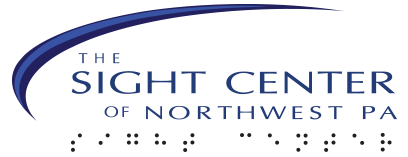Prevention of Blindness
Research confirms that 25% of children enter kindergarten with a visual condition that impedes learning. As part of our mission to prevent blindness, the Center provides thousands of pediatric vision screenings and education in pre-schools, child-care centers and kindergarten registration events in our seven-county service area from July 1, 2019 through March 19, 2020. Roughly 6% of children screened failed the screening and required professional follow-up for conditions from poor visual acuity to amblyopia/strabismus to more serious conditions. Parents of all children who failed screenings were contacted at 30-, 60-, and 90-days post-screening to ensure care was provided to the child.
All children who receive a vision screening are educated about eye health and safety. We are also out in the community presenting group discussions about eye health, nutrition, and the importance of professional care
In support of its mission to prevent blindness, in 2017 the Sight Center implemented the National Diabetes Prevention Program (NDPP) created and sponsored by the National Centers for Disease Control and Prevention (CDC). Diabetes is the leading cause of severe and permanent vision loss in adults of working ages. By preventing or delaying the on-set of diabetes, we prevent or delay diabetes-related damage to the eyes. The Center has received and maintained full national CDC recognition for this program since 2017. Hundreds of people have successfully graduated with weight loss at or in excess of the prescribed 5-7% and increased their exercise to a minimum of 150 minutes per week.
Vision Rehabilitation
The goal of vision rehabilitation it to improve quality of life in people living with vision loss. The Center provides low vision examinations to adults and children with reduced vision in order to maintain independence. Research states that 1 out of 3 older adults are diagnosed with a progressive eye disease which affects their vision and makes it difficult to complete activities of daily living independently. Hundreds of new clients were referred to low vision clinic. We are happy to report that 98% of clients seen report having a positive experience/appointment at the Sight Center based on surveys completed by our clients.
Blindness Services and Social Support
Independence is achieved or maintained by those with vision loss or blindness through Social Support and Case Management. Families with children who are uninsured or underinsured were provided eye exams and/or received glasses. Underinsured adults were provided with eye exams and/or received glasses, and clients in need of care outside of Erie were provided out of town trips for specialty eye care. Low vision and blind clients were provided with ongoing Case Management and Specialized Support Services, including but not limited to: assistance with mail reading & correspondence, bill payment & banking, form completion, grocery shopping, access to prescriptions, and transportation to medical appointments & other essential services which enable them to live independently with severe vision loss or blindness. Thousands of hours are used to provide local transport, supportive counseling services, and life skills education. The center supports low vision and blind children to participate in in a week-long Summer Sports Camp and ongoing programs including an entrepreneurial series, career exploration, and other indoor/outdoor activities with their peers. Dozens of our low vision and blind adults participate in a bi-weekly support and education program, including but not limited to technology assistance, transportation options, white cane instruction, cooking, crafts, resource sharing, socialization, and mutual support. Participation in groups provides people the opportunity to be with others who have a common purpose and understanding of one another.
Clients of the Sight Center are evaluated for changing needs and challenges as they occur, and service plans are reviewed and updated with clients individually on an annual basis. Referrals are made to appropriate community service programs and private service providers, as appropriate.

